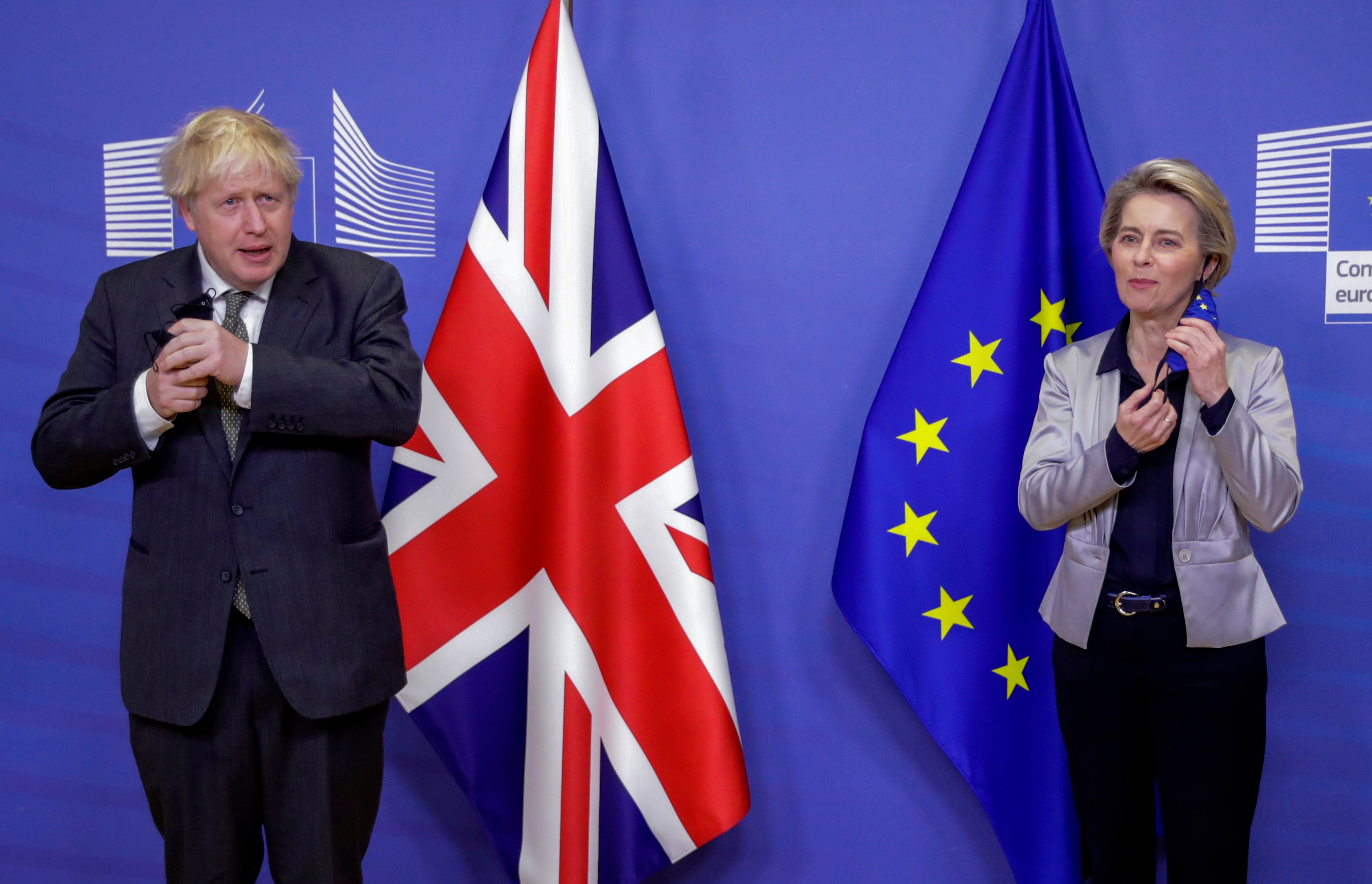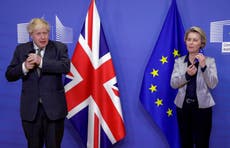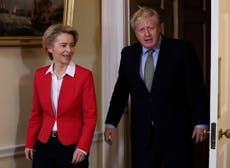Boris Johnson’s sweet reason hasn’t worked with Ursula von der Leyen – or not yet, anyway
The after-dinner statements confirmed that ‘very large gaps remain’ between the two sides, but hope remains there will be a decision ‘by the end of the weekend’, writes John Rentoul


Another new deadline, while “very large gaps remain” between the two sides. This time the deadline is Sunday. After that, if there is no deal, then it’s no deal. Unless there’s another deadline. The statement from No 10 actually said the prime minister and Ursula von der Leyen, the president of the European Commission, “agreed that by Sunday a firm decision should be taken about the future of the talks”.
In other words, on Sunday they could take a firm decision to carry on talking. But there was no evidence from this dinner that any progress had been made, and No 10 said “it is still unclear” whether the very large gaps “can be bridged”. But does that mean never, or not yet?
Before he set off for dinner in Brussels, Boris Johnson had set out the skittles, so that Von der Leyen could knock them down. He told the House of Commons “a good deal is still there to be done”, but that “our friends in the EU” are currently insisting on two things.
One was that, “if they pass a new law in the future with which we in this country do not comply or do not follow suit, they should have the automatic right to punish us and to retaliate”. The other was that “they are saying that the UK should be the only country in the world not to have sovereign control over its fishing waters”. For some reason he chose to echo Theresa May’s rejection of the EU’s original proposal for the status of Northern Ireland: “I do not believe that those are terms that any prime minister of this country should accept.”
It seemed that these were two caricatures of the EU’s position that it would be easy enough for Von der Leyen to disown, and that a deal could therefore be done over the turbot and celebrated by the time they got to the exotic fruit dessert.
This is, after all, a device that seemed to work in the parallel negotiation between Michael Gove and Von der Leyen’s deputy, Maros Sefcovic, over the Irish border. In that case, the British side took the most extreme interpretation of the EU position and declared themselves so affronted by it that they reserved the right to break the withdrawal agreement to defend the integrity of the UK.
Unsurprisingly, it turned out that the EU had no intention of trying to act on the most extreme interpretation of the withdrawal agreement, and a deal was indeed done. Gove came to the House of Commons to explain it and – although the legal texts have not yet been published – it does seem that the government’s objectives have been achieved, even if some Conservative MPs are still muttering about sausages.
The same tactic has not – yet – worked on Von der Leyen. Johnson has set out the extreme version of the EU’s positions and, instead of laughing them off as a ridiculous misunderstanding, Von der Leyen seems to have said that she does indeed expect any prime minister of this country to accept them. Her after-dinner statement said they had had “a lively and interesting discussion” (his adjective was “frank”): “We understand each other’s positions. They remain far apart.”
Anyone looking at the negotiation from the point of view of a mediator would say that the two sides don’t look far apart at all, and the gaps can obviously be bridged. Obviously if in future the EU decided to adopt higher standards in its market, the UK would not want to undercut those standards – or expect to be allowed to. It is simply a matter of devising a fair arbitration procedure, which is boring but not impossible. The same applies to fishing quotas.
Perhaps the most interesting part of Von der Leyen’s statement was that line about understanding each other’s positions. That could mean that they are not going to allow a deal to collapse by misunderstanding each other; but equally it could mean that both sides understand that a deal cannot be done.
I still believe that a deal will be done, but I just don’t know which Sunday they meant.



Join our commenting forum
Join thought-provoking conversations, follow other Independent readers and see their replies
Comments